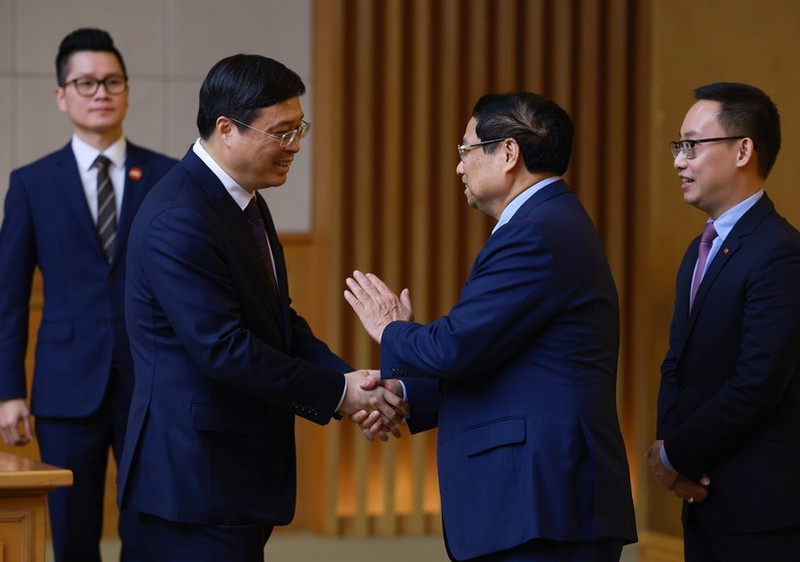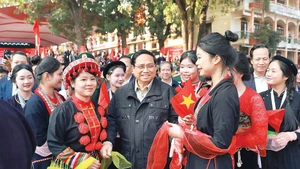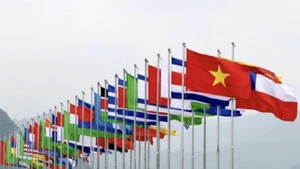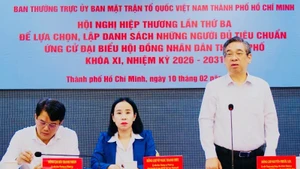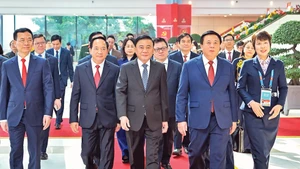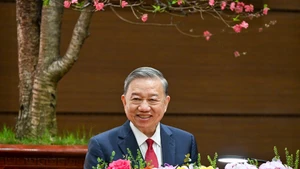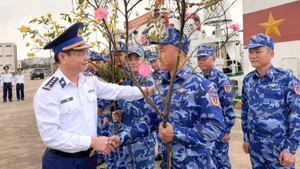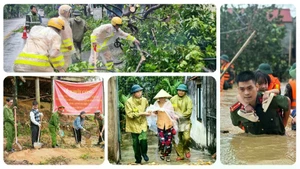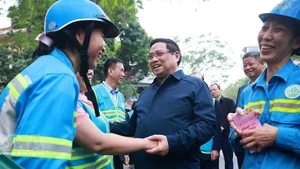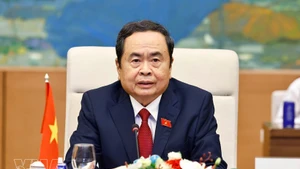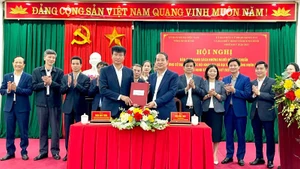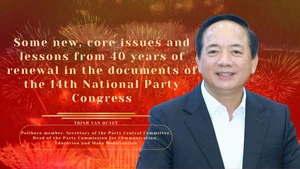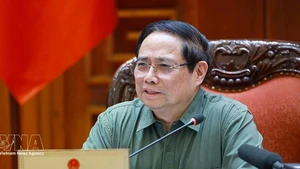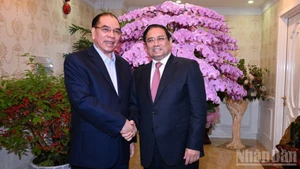PM Chinh welcomed Wei’s first overseas visit in his new post, saying the trip – together with recent visits by Guangxi leaders – reflected Guangxi’s special attention to relations with Viet Nam.
Wei congratulated Viet Nam on its socio-economic achievements and expressed his sympathy over the damage caused by recent storms and floods. He affirmed Guangxi’s priority to deepen friendly cooperation with Vietnamese ministries, sectors and localities, as well as the region’s determination to implement common perceptions reached by senior leaders of the two countries.
The two sides shared their delight at the strong momentum of the Viet Nam–China Comprehensive Strategic Cooperative Partnership. They noted that cooperation between Viet Nam and Guangxi has seen encouraging progress, particularly in people-to-people exchanges, artificial intelligence, transport connectivity, especially railways, and more streamlined customs procedures, along with progress in the cross-border cooperation pilot model.
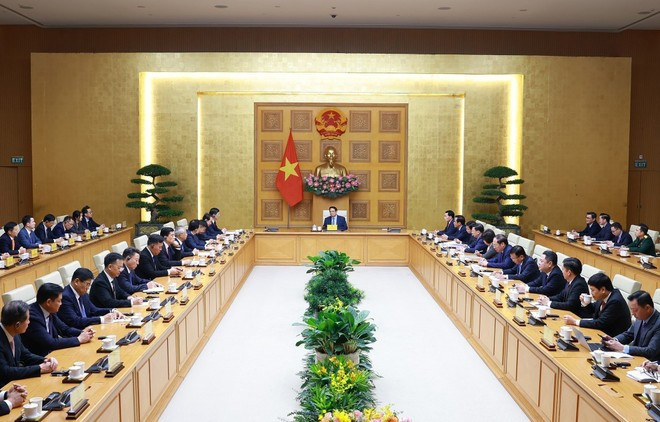
PM Chinh stressed Guangxi’s special significance as Viet Nam’s close neighbour with deep historical ties, noting its consistent role in advancing cooperation between Viet Nam and China. He underlined the substantial potential for stronger collaboration with Vietnamese ministries and localities.
For future cooperation, the PM called for intensified local-to-local exchanges and collaboration, and more effective cooperation mechanisms. The two sides should accelerate transport connectivity, focusing on the standard-gauge Lang Son–Ha Noi and Mong Cai–Ha Long–Hai Phong rail routes.
The PM suggested the piloting of a smart border gate model at Huu Nghi–Youyi Guan border gate pair, and other eligible crossings, along with early implementation of a cross-border economic cooperation zone, and improved customs efficiency, particularly for Viet Nam’s agro-forestry-aquatic product exports to China and to a third country through China.
PM Chinh also encouraged deeper cooperation in green growth, clean energy, science and technology, innovation and digital transformation – especially AI applications – and the development of major landmark projects. He urged both sides to manage the land border well, address arising issues promptly and build a Viet Nam–China boundary of peace, stability and cooperation.
Wei thanked PM Chinh for his guidance, affirming the vast cooperation potential with Viet Nam. The official said he hopes the two sides will accelerate transport infrastructure connectivity, facilitate customs clearance efficiency, smart border gate development and cross-border trade, and prioritise cooperation in AI while strengthening joint training programmes to develop high-quality human resources in science and technology.
Both sides should enhance border management, step up cooperation in combating cross-border crimes, and expand cultural and people-to-people exchanges, thereby helping to deepen the China–Viet Nam Comprehensive Strategic Cooperative Partnership for the practical benefit of localities and the people of both countries, he proposed.
